Peter Jacques used to be the track judges nightmare; but he’s mellowed with age and is now easing open – rather than breaking down – the door on a management and promotion career.
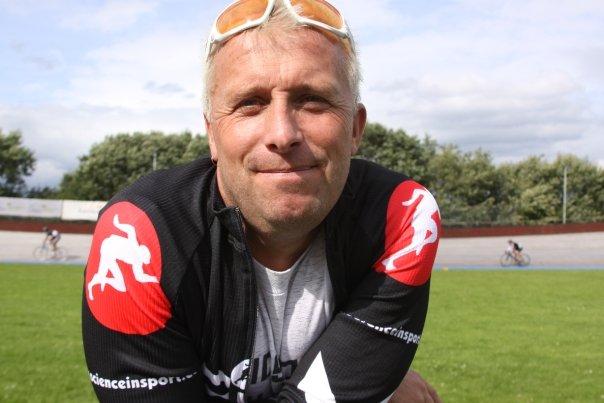
We heard there were a few commissaires went for a celebratory beer when you quit, Pete?
“It might have been a relief for one or two, yes!”
You were a grass man, originally?
“I actually used to do motocross, but when I was about 12 years-old, during the miners strike, they closed all the pit spoil heaps where we used to ride.
“I started to do BMX as well as grass; my dad was a champion on the grass but made me get a trade before I did anything – like go full time on the bike.
“I began to ride hard track, too – I did a 1:16 for the junior kilometre at Leicester in 1985. But really, until the late 80’s I rode everything.”
You were a sprint and keirin man?
“I was inspired by Eddy Alexander getting to the last four at Seoul in 1988.
“There were some good sprinters around at that time, like Paul McHugh and Mark Barry. I guess I was in the mould of Steve Paulding; I was a sprinter but could win a 20 kilometre.
“I trained on the road and never did specific sprint training until I was 20/21. I think it’s a genetic thing – my whole family has fast twitch muscles.”
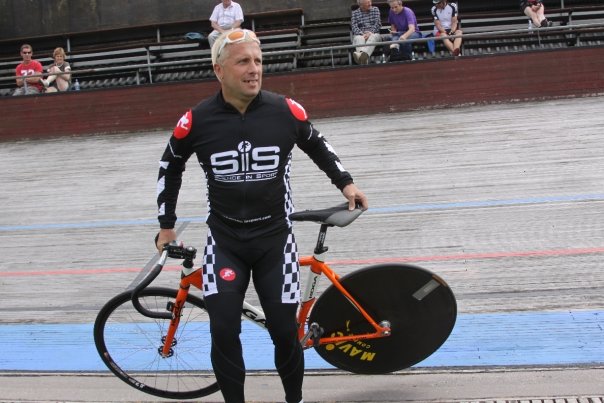
Give us your palmarès.
“In British champs, I won two sprint bronzes; three omnium titles; two keirin titles; a silver in the 20 kilometre; a silver in the tandem and from ’95 to ’99 I was five times on the trot in the winning Olympic Sprint team. We were producing 47.00 second rides, 11 years ago.
“I was fourth in the sprint at the 1998 Commonwealth Games. I actually had third on a technicality: but the corner judge wasn’t watching. I qualified 13th but beat fifth seed Doug Barren of Canada in the first round and took his: seeding. I got to the quarters and beat Danny Day (Australia) in three rides. I lost against Shaun Eadie in the semi final and was against Barry Forde (Barbados) in the ride off. I won the first ride, crashed badly in the second ride and lost the third.
“After it, we discovered that my nose was broken! My biggest asset was seated acceleration; in training I could do 10.4/10.5 coming off the derny.”
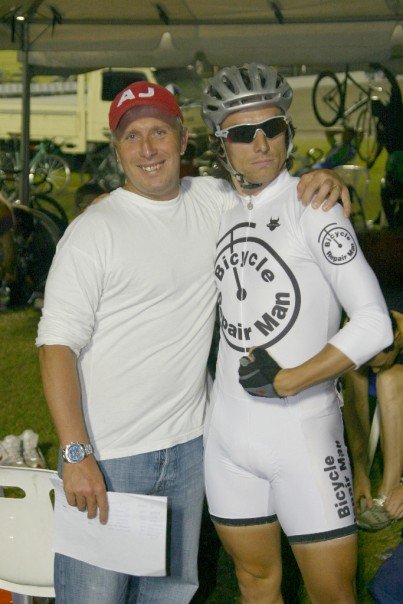
The ride that gave you most satisfaction?
“That would be a World Cup madison in Canada in ’98 where I rode with Shaun Wallace.
“It was the exact same field -apart from British: team – which rode the world champs later: that year.
“We finished 6th , then: rode to start line for the keirin final and got 6th in that. But my: excuse was it was a 42 km keirin final! We weren’t given much of a chance, but: qualified GB for the Worlds, that day.”
You were a bit of a ‘crash meister?’
“When I started winning, I used to sit and watch every round of the sprint – I figured that if I knew their tactics then I wouldn’t have to think about it in the race.
“But maybe that was why I suffered from nerves and that can have an adverse effect on how you ride. I was never as strong as Chris or Craig – Chris used to do leg presses with all the weights on the apparatus and Craig sitting on top of them, too – so I was ‘do or die,’ go through the middle or the inside!
“If it didn’t work, then you’d go down; I broke my nose, skull, pelvis and collar bone in crashes.”
The ‘Plan’, do you regret not getting more advantage from it?
“I raced because I wanted to, not for money, I would have raced for nothing but in my own way, not to stay in line with Peter Keen.”
In Trinidad and Tobago, you’re an, ‘International cycling icon’ according to the websites.
“Out in Trinidad, they remember the personality, not just the rider. My dad rode out there in the 60’s on the grass – the public love grass track racing on the island – and I’ve been there every year between 1995 and 2009.
“I didn’t ride this year though – not with guys like Franco Marvulli, Leif Lampater and Tony Tauler competing!”
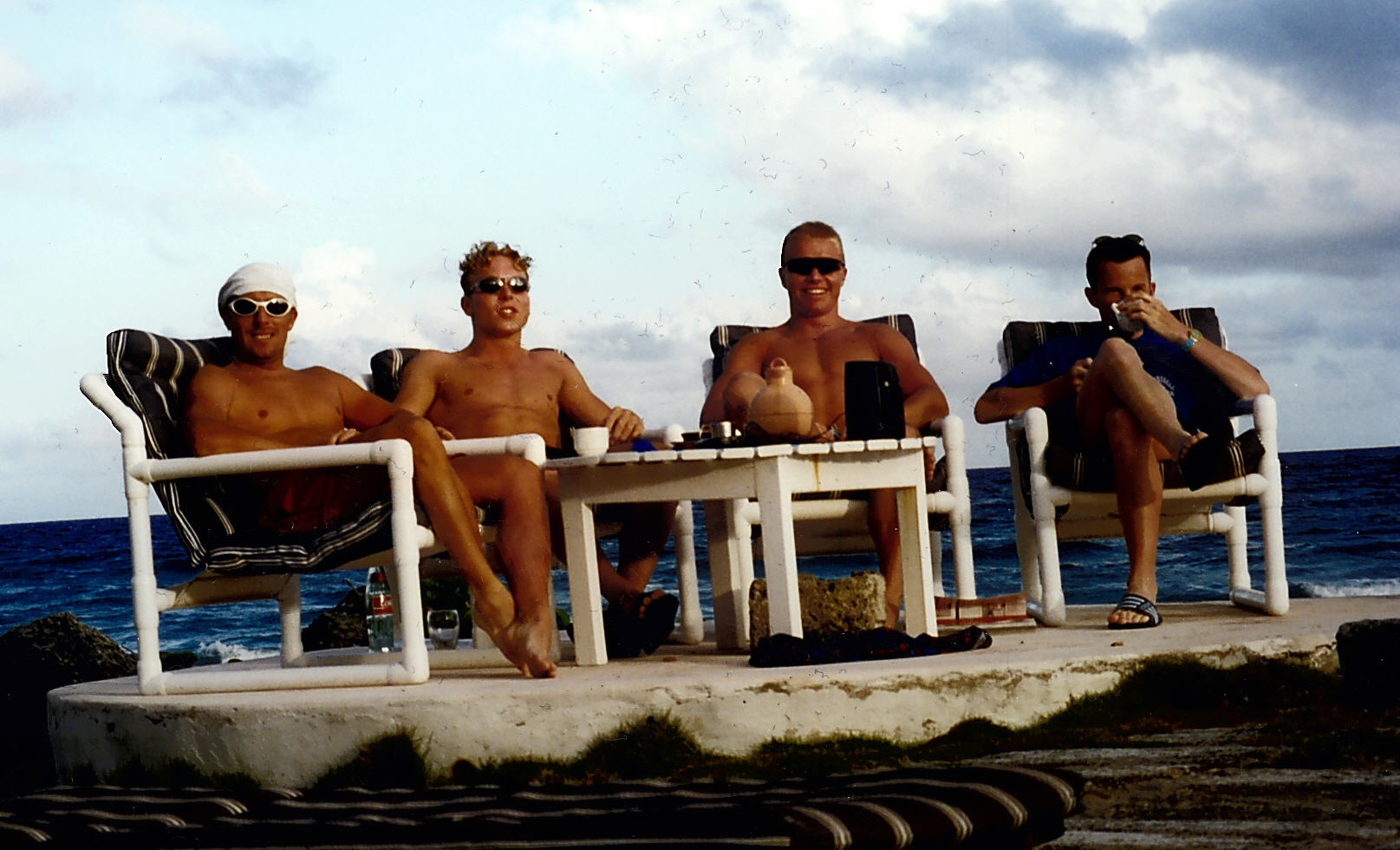
Tell us about your Keirin time in Japan.
“They have talent scouts are at the World Cups and Commonwealth Games; they liked that I just got up and back on my bike after crashes and saw that I was getting top six results at that level.
“When you arrive, you go straight to Keirin School and then for testing at the hospital. You’re hardly allowed any rest before you’re straight into a series of 18 training races against groups of four or five Japanese riders – the result of every race is dissected, after it.
“You require extreme leg speed, they’re doing 10.6 on big 400 metre outdoor, concrete tracks.
“You’re not allowed to look at the track beforehand, or take your hands off the bars – in case you’re signalling to the bookies.
“If a Japanese rider is caught race fixing, he’s looking at five years in jail; a foreign rider is sent home, immediately.
“The equipment is all: standardised, in terms of angles, gearing, spoking, steel frames and just one toe strap.
“The stars get interviewed by the media, just like football players, here.
“But it’s not just about the bike, there’s a lot of history and tradition – a rider will arrive in a Lamborghini, next thing you’ll see him sprinkling salt on the track as part of the rituals.”

Track racing, where is it going?
“I think that it has a big future; the traffic situation on the roads is making road racing and time trials more and more difficult and dangerous.
“We only have two indoor tracks, Manchester and Newport which are both very popular. But I think that British Cycling should have their own track, to free up the other two venues.
“I think that the spread of money is disappointing; it’s possible to create portable training tracks for around £275,000 – there’s another Chris and Craig out there, somewhere. If we’d won the World Cup and not all the golds on the cycling track at Beijing, there’s be football training grounds springing up everywhere. Cycling is a good sport; there’s a drive towards health and sport, but the roads are too dangerous.”
The Glasgow track?
“There has to be one – for the Games.
“I think it will be as popular as Manchester, with riders from all over Scotland, Cumbria and the North East. But there should be one in Edinburgh – that’s where Britain’s most successful Olympian came from.”
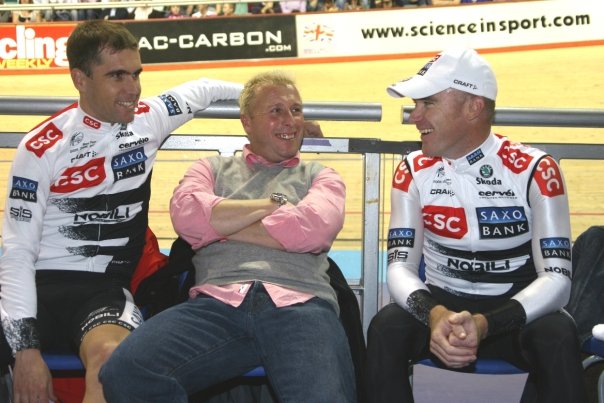
You’re becoming more involved in promotion and management.
“With having ridden in Trinidad and at the Revolutions, and being involved with Fran Millar and James Pope from the Face Partnership, who organise the Revolutions, you begin to get involved in that side of things.
“Organisers want entertaining riders, not necessarily national squad riders – and a lot of times it’s impossible to get squad riders because of their commitments – but riders who will: put on a show.
“There’s a lot of word of mouth involved, of course – and emails and phone calls around the world, but it’s something that’s slowly coming together – I’m working with riders like Leif Lampater and Franco Marvulli, and that’s very satisfying.”
Regrets?
“Not discovering earlier that you could make money from bike racing! Seriously, very few, I rode for fun and filled my passport in four years – I saw the world and rode with the Japanese Keirin Association. I did pretty much everything that I wanted to do.”
With thanks for your time Pete, and best of luck for your riders at the next Revolution. Thanks to John Hewat for the photos.



